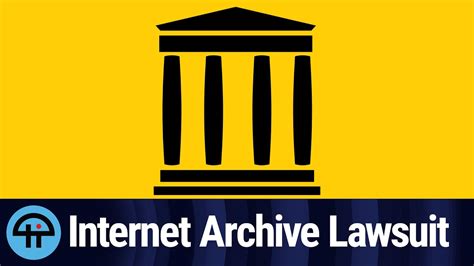The digital age has brought about unprecedented access to information, yet ironically, it has also introduced new barriers. The recent court ruling that compelled the Internet Archive to remove half a million books serves as a glaring reminder of this paradox. The publishers’ court victory underscores the contentious landscape of copyright law and its implications for knowledge preservation and accessibility. For many, the Internet Archive (IA) is more than just a digital library; it’s a bulwark against the erosion of human knowledge, providing access to texts that are otherwise unavailable or prohibitively expensive. Yet, this decision threatens to unravel that progress.
During the COVID-19 pandemic, the IA launched its National Emergency Library, allowing unrestricted access to its digital book collection. This move was hailed by many as a generous attempt to foster learning and access to knowledge in unprecedented times. However, it also drew ire from publishers, claiming that such actions violated copyright laws. The core of the controversy lies in the practice known as Controlled Digital Lending (CDL). Under CDL, libraries lend out one digital copy for every physical copy they own, maintaining a one-to-one owned-to-loaned ratio, akin to traditional physical book lending. But during the pandemic, IA temporarily lifted this restriction—a move that critics argue crossed the line into outright piracy, though supporters contend it was a necessary public service.
One key argument made by publishers is the economic harm allegedly caused by IA’s digital lending practices. As one commenter put it, “They were taking a copy licensed to be lent ONCE and giving it to thousands of people at once.” However, another perspective challenges this assertion, questioning whether it constitutes ‘piracy,’ especially for books that are otherwise unavailable. One commenter poignantly asked, “What was taken that’s no longer there?” suggesting that the traditional notions of theft and piracy do not neatly apply to digital goods.
Interestingly, many books made available by the IA are out-of-print or otherwise inaccessible, highlighting a crucial gap in the market. For researchers and enthusiasts, IA’s collection has been an invaluable resource. For example, as one commenter noted, many of IA’s scans are from library books dating back several decades, which can be vital for academic work. This aspect of IA’s service underscores a unique and irreplaceable value—preserving works that have otherwise faded from public access. The question then becomes: should publishers who no longer monetize these works hold exclusive rights indefinitely, or should such works transition to the public domain to benefit society?
The response from the tech and academic community has been largely one of dismay and disapproval. The phrase “information wants to be free” reflects a longstanding ethos in the hacker and digital rights communities. These advocates argue that the current copyright system is outdated, overly restrictive, and serves the interests of powerful corporate entities rather than the public good. They propose a reinvented approach to copyright that better aligns with the digital age’s realities. This would involve significantly shorter copyright terms and more provisions for the public domain.
A relevant historical note here is the original term limits set by the Statute of Anne in 1710, the world’s first copyright law. It established a 14-year term, with a possible extension of another 14 years. Today’s term—life plus 70 years—seems excessive by comparison. A modern approach might involve a basic term of, say, 20 years, with the possibility for extensions only under stringent conditions, such as proof of continued commercial availability. Some commenters propose we take lessons from other areas of IP law, like trademark laws, where ‘use it or lose it’ principles apply.
Finally, we must consider the broader implications. If platforms like the Internet Archive face existential threats, the fallout could extend beyond just the loss of books. It could jeopardize the preservation of digital content, historical records, and other crucial data. As one astute commenter pointed out, “The whole thing is duct tape and string,” reflecting both IA’s expansive ambition and its precarious financial and legal position. We must ask ourselves if we are willing to sacrifice this repository of human knowledge for rigid adherence to outdated legal frameworks.
In conclusion, the Internet Archive’s legal battle over its digital lending practices is a microcosm of larger societal debates about access, ownership, and the public good. Revisiting and potentially reforming copyright laws to reflect contemporary digital realities could be a step towards ensuring that the vast expanse of human knowledge remains accessible and equitable. Without such reforms, we risk a future where access to information depends more on financial privilege than on intellectual curiosity and democratic ideals.


Leave a Reply